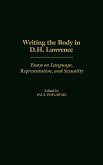Muriel Spark's works often consider the seductive and destructive power of social structures, such as religion and education. These structures lure Spark's characters with their promise of power. But after entering the structure's domain to exploit the mastery it offers, the characters are imprisoned by rules and codes. Through a postmodern reading of Spark's works, such as The Comforters (1957), ^The Public Image (1968), The Driver's Seat (1970), Reality and Dreams (1996), and Aiding and Abetting (2000), this book analyzes the role of certain social structures in her fiction. The volume argues that these attractions and destructions are very much like postmodern critical games with structures that are open to any experimentation, but at the same time seem fixed and unchanging. Within this postmodern context, one is free to play games with signs and systems of rules. Spark's characters enter these games in a playful mood and test their limits. The texts, images, and spectacles haunt their victims, who are unable to escape the process of attraction and destruction. The characters are eventually led to their death-literal or metaphoric-which will inevitably introduce them to a new beginning.
Hinweis: Dieser Artikel kann nur an eine deutsche Lieferadresse ausgeliefert werden.
Hinweis: Dieser Artikel kann nur an eine deutsche Lieferadresse ausgeliefert werden.








